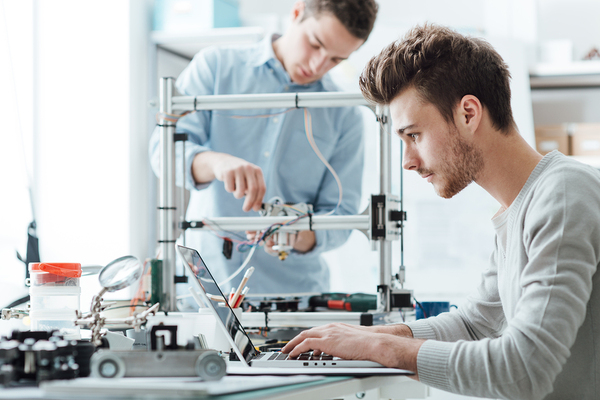The Value of Hands-On Fieldwork in Biomedical Engineering
Some skills just can’t be taught from textbooks
Biomedical engineers design and develop medical technologies that lead to advances in the field that improve people’s lives, and sometimes even save lives. In the learning process, the value of hands-on fieldwork in biomedical engineering cannot be underestimated.
There is always a theoretical component to engineering, biology and medicine that must be learned and absorbed in order to have a thorough understanding of those fields. When it comes to true skill development and mastery of the field, however, some things just can’t be learned without a hands-on approach.

The Benefits of Hands-On Fieldwork
Just as there is a theoretical component to biomedical engineering, there is also a creative and practical component that is necessary in the field. Creativity is needed in order to come up with new ideas for devices, processes and technologies; and while creativity can’t be explicitly taught, it can be encouraged and facilitated through hands-on experiences.
Practical skills include problem-solving and synthesizing knowledge into new ways of thinking. Practical skills are best learned through experience, and fieldwork is the best way to develop those skills. Fieldwork may include work in a lab, a manufacturing facility, or a think tank that comes up with prototypes which can be developed by other companies.
Hands-on fieldwork is experience that can demonstrate skills to employers and be used on a resume when applying for jobs. This kind of experience is invaluable in setting you apart from other recent graduates, and some companies use fieldwork experiences to “try out” students that they may later decide to employ—if they like what they see during the fieldwork experience.

Fieldwork is also a chance for students to try a particular type of biomedical engineering work to see if it is a good fit for them and something they might like to do as a job in the future. It’s much better to learn in a fieldwork experience that you don’t want to work for a manufacturer than to get a job with one after graduation and learn that you don’t enjoy the work.
Learning by Doing
Educators have long known that some subjects are best taught through learning what to do and then doing it—practicing until the process becomes familiar and well-known. Especially in fields like biomedical engineering, it’s crucial for students to apply the theoretical concepts they learn in the classroom to real-world situations. This allows them to prepare for a job where they’ll be creating new products and processes or figuring out how to improve on existing ones. Asking “is there opportunity for hands-on fieldwork?” will help students determine whether a given biomedical engineering degree program may fit their needs.
Florida Tech provides numerous hands-on biomedical engineering research activities for students from collaborative labwork within their courses to internship opportunities that can become resume builders and boost career prospects even before graduation. Learn more about our master’s in biomedical engineering program and all we have to offer students in this exciting field.
%CODE1%





